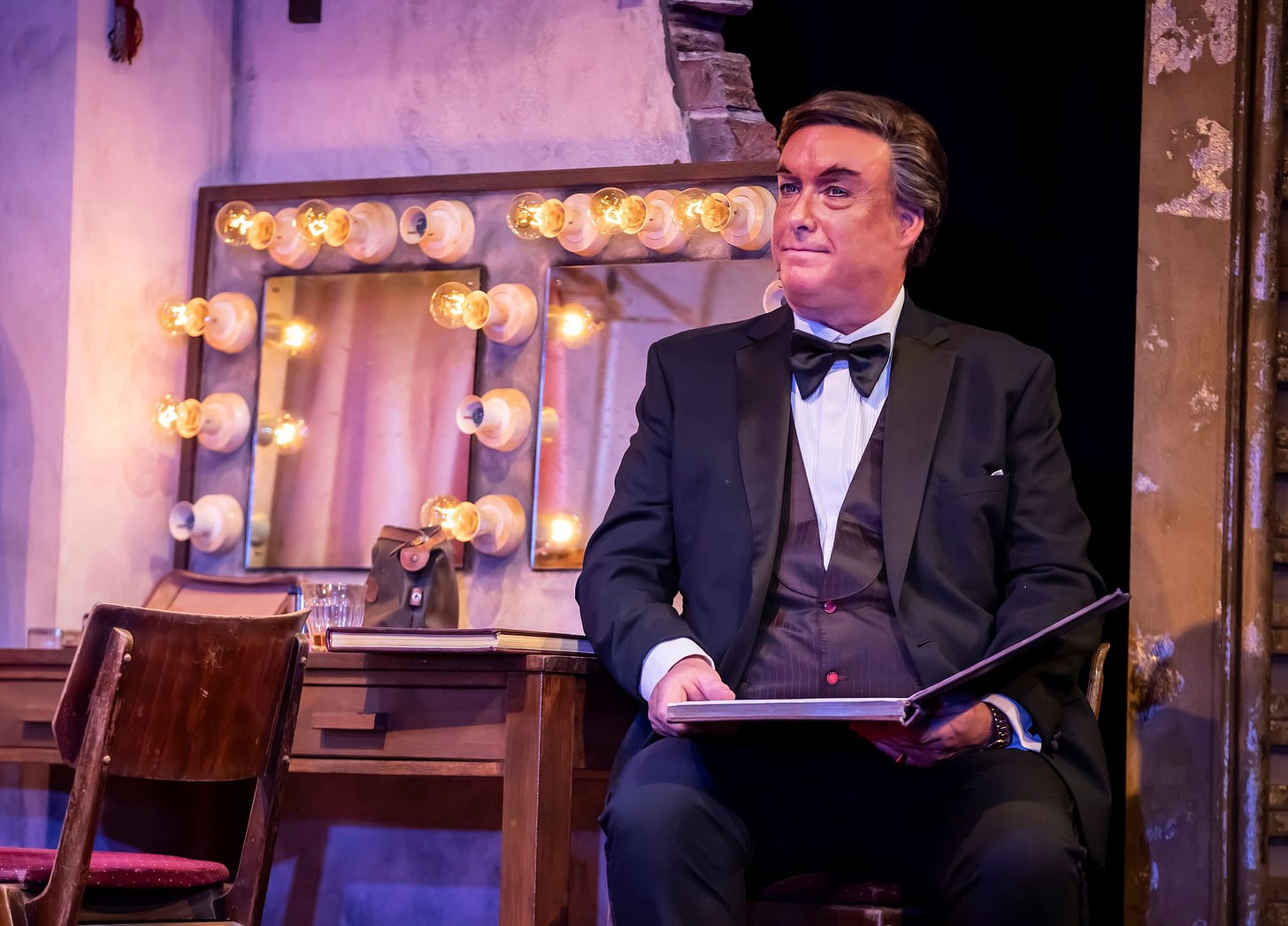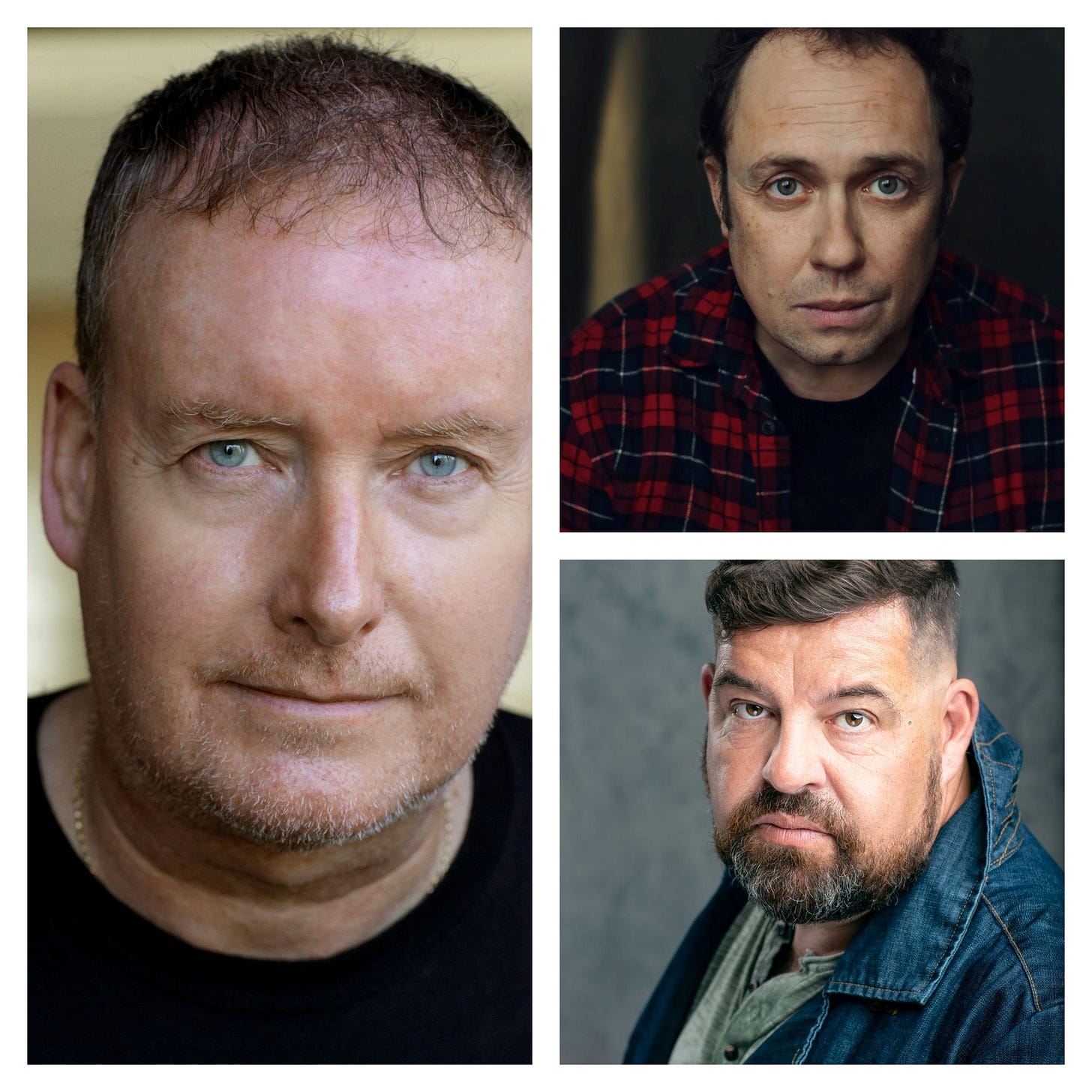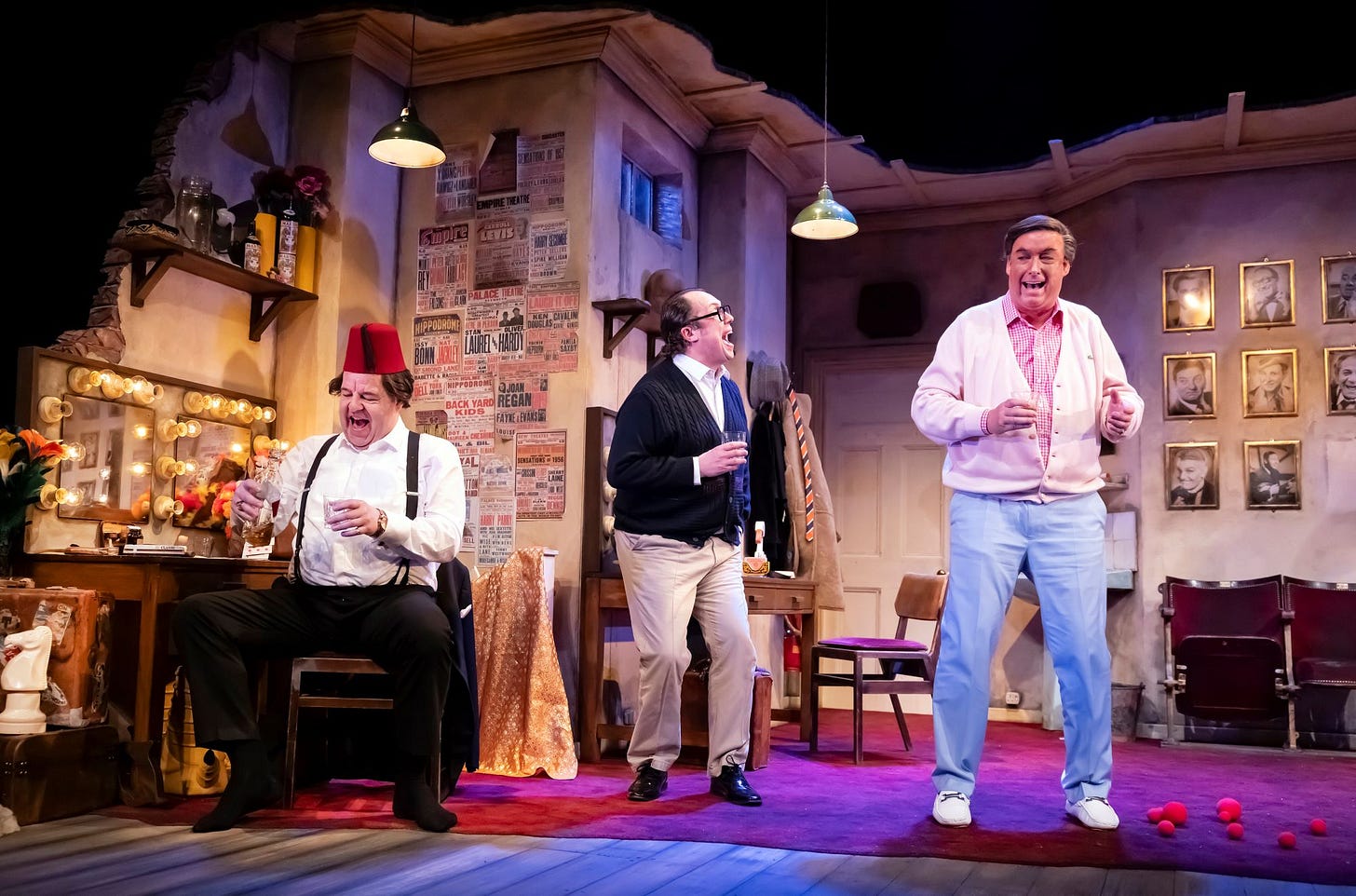What comedy legend did for me and my career
Actor Simon Cartwright remembers Bob Monkhouse
Without Bob Monkhouse, what might Simon Cartwright be up to these days?
It’s a fair question says the man who will be making his first appearance on the Theatre Royal stage playing the late comedian and host of game shows such as The Golden Shot and Celebrity Squares.
It was when Bob was hosting Opportunity Knocks in 1989 that Simon, then a music student, decided to take his chance on the programme with some impressions.
Should he give his Bob Monkhouse an airing, making it the climax of his routine?
It was a gamble he decided to take – as you can see in a YouTube clip from the show - and Bob, far from taking offence, was amused and took the young man under his wing.
“I was cutting my teeth as an impressionist and I look at it now and think it’s absolutely dreadful,” shudders Simon.
“I’d been in the business five minutes and knew nothing.”
But here he is now on tour in Paul Hendy’s play The Last Laugh which imagines three great comedians – Tommy Cooper, Eric Morecambe and Monkhouse – sharing a dressing room and reflecting on their careers and the nature of comedy.
It’s a fascinating scenario because they were such different men: Cooper in his fez inviting laughter before uttering a word; Morecambe impossible to imagine without sidekick (Ernie) Wise; and the dapper and unflappable Monkhouse, perfect for TV.
The play began as an award-winning short film in 2016 with the cast we see now, Simon joined by Damian Williams as Cooper and Bob Golding as Morecambe.
Simon must have been a shoo-in, having impressed at the Edinburgh Fringe the previous year in a solo show, The Man Called Monkhouse (directed by Bob Golding who had also appeared in a Fringe show playing Eric Morecambe in 2009).
When Hendy turned his film into a play, it was no surprise when he chose to premiere it last year at the Edinburgh Fringe.
In February it opened in London’s West End, getting great reviews, and recently it embarked on a UK tour after a New York run which didn’t go as well as had been hoped.
“It’s good to be back on English soil,” says Simon pointedly.
“In old York and now Richmond, we’ve had fantastic audiences with everyone on their feet at the end. Exactly what we want.”
He acknowledges the “English-centric” nature of the material.
What indeed could be more English, British even, than the comedy of these three? All were household names, just like family to most people in their TV heyday.
If you’re of a certain age (Cooper and Morecambe died in 1984, Monkhouse in 2003) you’ll find it hard to believe they’re now strangers to many.
“It’s terribly sad,” says Simon. “But I think it’s wrong to say this is only for a certain demographic because we’re introducing younger generations to these icons in the history of light entertainment and comedy.
“I get a lot of people saying, ‘I’d never heard of this guy but now I’m going to watch clips on YouTube’, so I think it’s good for all audience members.
“But of course, it’s a plus if you do remember them.”
Simon remembers Bob Monkhouse being “everywhere” on TV in the 1980s, as he had been in earlier decades too.
“I used to look at him and think, ‘Goodness me! I’d love to be as smart as him, as funny as him’. I didn’t get the Marmite issue of him being smarmy. I never connected with that.
“Having got on Opportunity Knocks and met him, and for him to actually encourage me, mentor me and literally coach me in several dressing room encounters, was just incredible.
“I’ve got the advantage over the other two because they never met the characters they’re portraying. I can remember what Bob was like off stage and most of this play is off stage.”
You can see why Simon would be a fan. To a young man keen to get into acting, having decided at college that actors had all the fun, Bob Monkhouse was a beacon of support.
“He said, ‘I’m going to be in touch. Here’s my card. We’ll help you with some material’. I was gobsmacked. Wow!
“I can’t boast I was a close friend but if you troubled to get in touch, he would write – so I kept in touch for a further 18 years.
“I would usually meet him in a theatre dressing room if he was doing a show, or at recordings of his programmes.
“He didn’t mind. He was always interested in how I was doing and suggesting I write to this or that agent and to mention his name.
“He took the trouble. That old school courtesy.”
Not everyone had it. Simon has also toured in a play called Howerd’s End, playing Frankie Howerd (who died in 1992).
He was another icon whom Simon met in 1984, politely asking him for an autograph only to be rebuffed.
“What a contrasting character he was, so off-hand and rude. He was quite unpleasant and it shattered the illusion of this great man.”
This he’d had to forget on stage, by which time, having got to know something of his troubled private life, he felt quite sorry for him – and there was no getting away from his comedic brilliance.
“I ended up playing him with love and sympathy.
“He was quite a difficult man, demanding and tempestuous, but I focused on his tremendous contribution to the entertainment industry.”
There’s no Frankie to muddy the waters of The Last Laugh and Simon says the three actors have formed a close bond.
“There’s lots of banter and nonsense. We’re like schoolboys and that energy goes on stage with us – and we’re all there for each other.
“I think New York was a bonding experience. We were so depressed and fed up. The camaraderie kept us going.”
Soon Simon must prepare for a matinée in Richmond. To become Bob he will conceal his blue eyes behind brown contact lenses, apply special make-up, “a sort of base tan colour”, false eyebrows, an expensive wig and a distinguishing facial mole.
And while you might assume Bob was fond of a celebrity ‘perma-tan’, Simon says in fact he suffered in later life from a condition called vitiligo which causes pale blotches on the skin.
It caused him great distress until a make-up artist suggested a particular kind of concealer.
“That’s why he always looked as if he was permanently holidaying in Barbados. Ironically he had a home in Barbados but couldn’t sit in the sun.”
Simon has never performed in Newcastle but Bob knew it well enough. He performed at La Dolce Vita, the celebrated nightclub on Low Friar Street (as did Tommy Cooper), and briefly in the 1960s had a financial interest in a club on Bath Lane called Change Is.
He was also a great supporter of the northern club scene, says Simon.
“I’ve always found it fascinating that this courtly, middle class son of a chartered accountant who went to Dulwich College and wore nice suits could succeed in a spit-and-sawdust club.
“You’d think those audiences wouldn’t want someone like that but he was industrious and found ways of getting good material. He was, in my opinion, the sharpest and most effective club comic we ever had.
“His daughter Abigail would always say, ‘Did you ever see him live?’ Often people would say no but that was what they were missing. He had the equivalent of an AI brain, ferociously intelligent.”
The Last Laugh is at the Theatre Royal from June 24-28. Tickets via the theatre website or call 0191 2327010.






